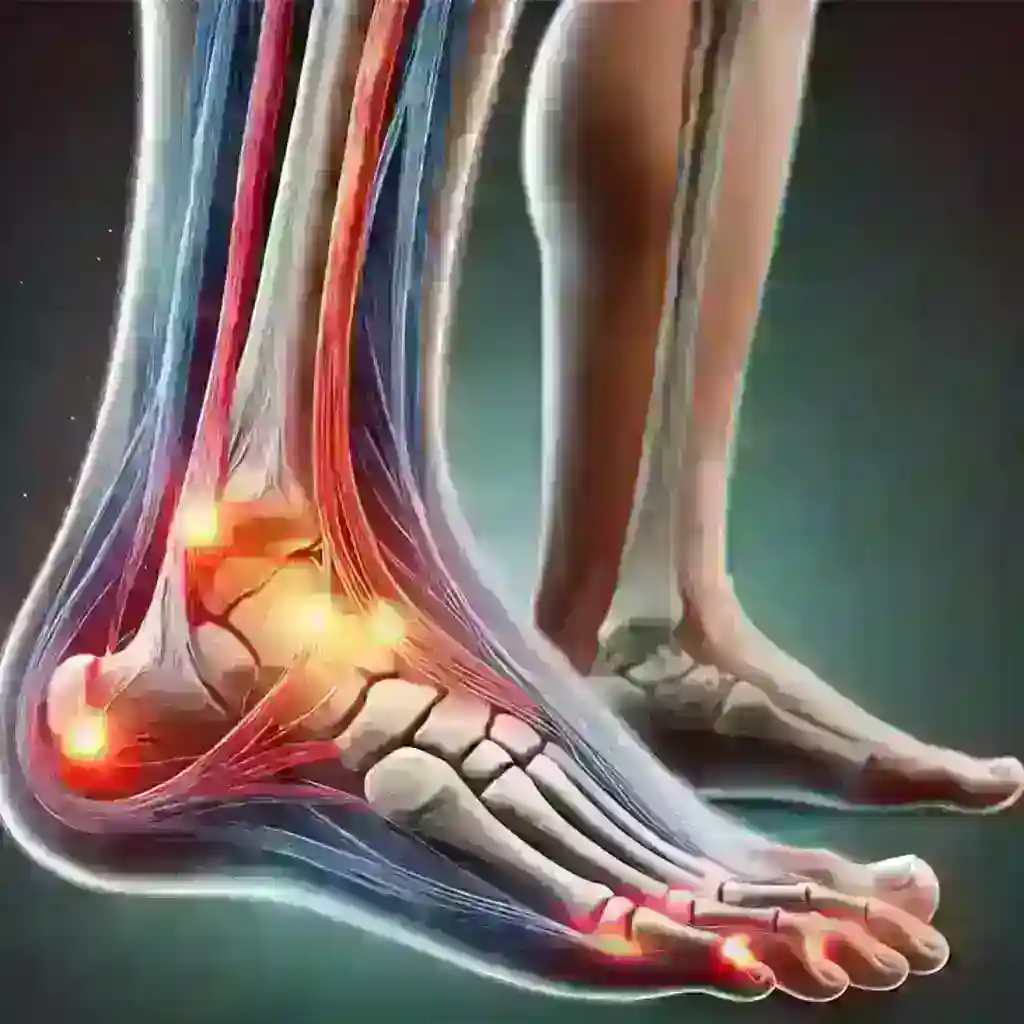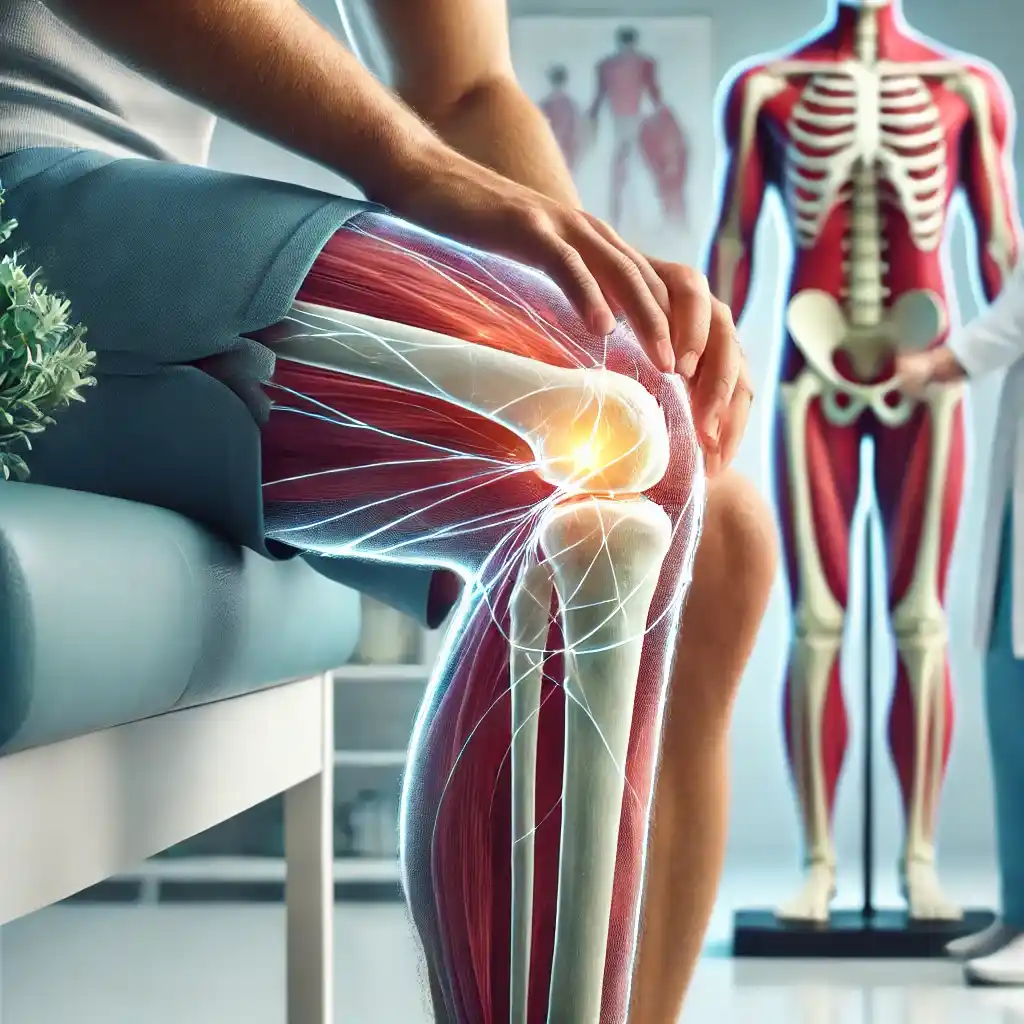
Table of Contents
Multiple sclerosis (MS) is a complex and often misunderstood condition that affects millions of people worldwide. It’s a chronic illness that targets the central nervous system, disrupting the flow of information within the brain and between the brain and body. Understanding MS is crucial not only for those diagnosed but also for their families, friends and caregivers. This comprehensive guide will delve into the symptoms, treatments and ways to manage and live with MS, providing valuable insights for anyone looking for a guidance regarding this disease.
What is Multiple Sclerosis?
Definition
Multiple sclerosis is an autoimmune disease where the immune system mistakenly attacks the protective sheath (myelin) that covers nerve fibers. This disrupts communication between the brain and the rest of the body and can lead to nerve damage, causing a range of symptoms.
Types of MS
There are several types of MS, each with its own pattern of symptoms and progression:
- Relapsing-Remitting MS (RRMS): Characterized by clear relapses of symptoms followed by periods of remission.
- Primary Progressive MS (PPMS): Marked by a steady progression of symptoms without distinct relapses or remissions.
- Secondary Progressive MS (SPMS): Initially begins as RRMS but transitions to a steady progression over time.
- Progressive-Relapsing MS (PRMS): A rare form with steady progression and acute relapses.
Causes and Risk Factors
Genetic Factors
While MS is not directly inherited, having a family member with MS increases the risk. Certain genetic markers, such as HLA-DRB1, are associated with a higher susceptibility.
Environmental Triggers
Environmental factors, including low vitamin D levels, smoking, and certain viral infections (like Epstein-Barr virus), can increase the risk of developing MS.
Immune System Dysfunction
MS is an autoimmune condition, meaning the immune system attacks the body’s own tissues. The exact cause of this malfunction is still under investigation, but it’s believed to be a combination of genetic and environmental factors.
Symptoms of Multiple Sclerosis
Early Symptoms
Early signs of MS can be subtle and vary widely. Common initial symptoms include:
- Numbness or Tingling: Often in the face, arms or legs.
- Vision Problems: Such as blurred vision or double vision.
- Fatigue: Unexplained and persistent tiredness.
- Weakness: Particularly in the legs and arms.
Progressive Symptoms
As MS progresses, symptoms can become more pronounced and diverse:
- Muscle Spasms and Stiffness: Often in the legs.
- Mobility Issues: Difficulty walking or maintaining balance.
- Cognitive Changes: Problems with memory and concentration.
- Pain: Chronic pain affecting various parts of the body.
Symptoms by Type of MS
Symptoms can vary based on the type of MS. For example, RRMS may involve clear periods of worsening symptoms (relapses) and improvement (remissions), whereas PPMS shows a steady progression without remission.
Diagnosing Multiple Sclerosis
Medical History and Neurological Exam
Diagnosis begins with a thorough medical history and neurological examination. Doctors look for signs of nerve damage in different parts of the central nervous system.
MRI and Imaging Tests
MRI scans are crucial in diagnosing MS as they can reveal lesions or areas of damage in the brain and spinal cord.
Lumbar Puncture and Blood Tests
A lumbar puncture (spinal tap) can detect abnormalities in the cerebrospinal fluid, supporting the diagnosis of MS. Blood tests can help rule out other conditions with similar symptoms.
Types of Multiple Sclerosis
Relapsing-Remitting MS (RRMS)
The most common form, characterized by relapses of symptoms followed by periods of remission. During remission, symptoms may improve or disappear entirely.
Primary Progressive MS (PPMS)
PPMS involves a continuous progression of symptoms without distinct relapses or remissions. This type can be more challenging to treat.
Secondary Progressive MS (SPMS)
SPMS follows an initial relapsing-remitting course but eventually transitions to a steady progression of symptoms, with or without relapses.
Progressive-Relapsing MS (PRMS)
A rare form that is progressive from the onset, with acute relapses. It’s the least common type of MS.
Treatment Options
Medications
Disease-Modifying Therapies (DMTs)
DMTs are designed to reduce the frequency and severity of relapses and slow the progression of MS. Examples include interferon beta, glatiramer acetate and newer oral medications like dimethyl fumarate.
Symptom Management Drugs
Medications can also help manage specific symptoms such as muscle spasms, fatigue and bladder problems. These may include muscle relaxants, stimulants and anticholinergics.
Lifestyle Changes
Diet and Exercise
A balanced diet rich in anti-inflammatory foods and regular exercise can improve overall health and help manage MS symptoms. Exercise can enhance mobility, strength and mood.
Stress Management
Techniques such as mindfulness, meditation and yoga can help reduce stress, which may exacerbate MS symptoms.
Alternative Therapies
Physical Therapy
Physical therapy can help maintain and improve mobility, reduce pain and manage spasticity.
Occupational Therapy
Occupational therapy focuses on helping individuals perform daily activities more easily, promoting independence and improving quality of life.
Living with Multiple Sclerosis
Managing Symptoms
Effective symptom management involves a combination of medications, lifestyle adjustments and supportive therapies. Each person’s experience with MS is unique, requiring a personalized approach.
Maintaining Mobility and Independence
Using mobility aids, home modifications, and assistive technologies can help maintain independence and enhance the quality of life.
Emotional and Mental Health Support
Living with a chronic condition like MS can be emotionally challenging. Support from mental health professionals, support groups and counseling can be invaluable.
Diet and Nutrition for MS
Anti-Inflammatory Foods
Foods rich in omega-3 fatty acids, antioxidants, and fiber can help reduce inflammation. Examples include fish, berries and leafy greens.
Supplements and Nutritional Support
Supplements like vitamin D, omega-3s, and probiotics may provide additional support in managing MS.
Exercise and Physical Activity
Benefits of Exercise
Regular exercise can help maintain muscle strength, improve cardiovascular health and enhance overall well-being. It also aids in managing fatigue and spasticity.
Recommended Exercises
Low-impact exercises like swimming, walking and yoga are ideal for individuals with MS. They are gentle on the joints while promoting flexibility and strength.
Precautions
Always consult with a healthcare provider before starting a new exercise regimen, and listen to your body to avoid overexertion.
The Role of Mental Health in MS
Coping with Chronic Illness
Developing coping strategies, such as mindfulness and relaxation techniques, can help manage the emotional challenges of living with MS.
Support Groups and Counseling
Connecting with others who have MS through support groups or seeking counseling can provide emotional support and practical advice.
Technological Aids and Tools
Mobility Aids
Devices such as canes, walkers and wheelchairs can assist with mobility and independence.
Assistive Technology
Technology like speech recognition software and adaptive tools can help manage daily tasks more efficiently.
Latest Research and Developments
New Treatments and Medications
Research is ongoing to develop new treatments that offer more effective management of MS with fewer side effects.
Clinical Trials and Innovations
Participating in clinical trials can provide access to cutting-edge treatments and contribute to the advancement of MS care.
Common Misconceptions About MS
Debunking Myths
Common myths include that MS always leads to severe disability or that it’s solely caused by genetic factors. In reality, MS varies widely in its progression and severity.
Fact-Checking Popular Beliefs
It’s essential to rely on accurate information from reputable sources and healthcare providers when managing MS.
Future Directions and Hope for MS
Advancements in Treatment
Ongoing research and technological advancements offer hope for more effective and personalized treatments in the future.
Outlook for Patients
With early diagnosis and proper management, many individuals with MS can lead full and active lives. Advances in treatment continue to improve the prognosis for those affected.
Conclusion
Multiple sclerosis is a multifaceted condition that requires a comprehensive approach to management. From understanding the causes and symptoms to exploring treatment options and lifestyle changes, staying informed is key to improving quality of life. By working closely with healthcare providers and leveraging available resources, individuals with MS can achieve a fulfilling and active life despite the challenges of the disease.
FAQs
Can lifestyle changes affect MS progression?
Yes, lifestyle changes like a healthy diet, regular exercise, and stress management can positively impact MS symptoms and progression.
How do I know if I have MS?
Diagnosis involves a combination of medical history, neurological exams, imaging tests and sometimes lumbar punctures. Consult with a neurologist if you experience symptoms.
What is the life expectancy for someone with MS?
Life expectancy for people with MS has improved and is often close to that of the general population, especially with early diagnosis and effective management.
Can MS be cured?
There is currently no cure for MS, but treatments can help manage symptoms and slow disease progression. Ongoing research continues to seek more effective treatments.



